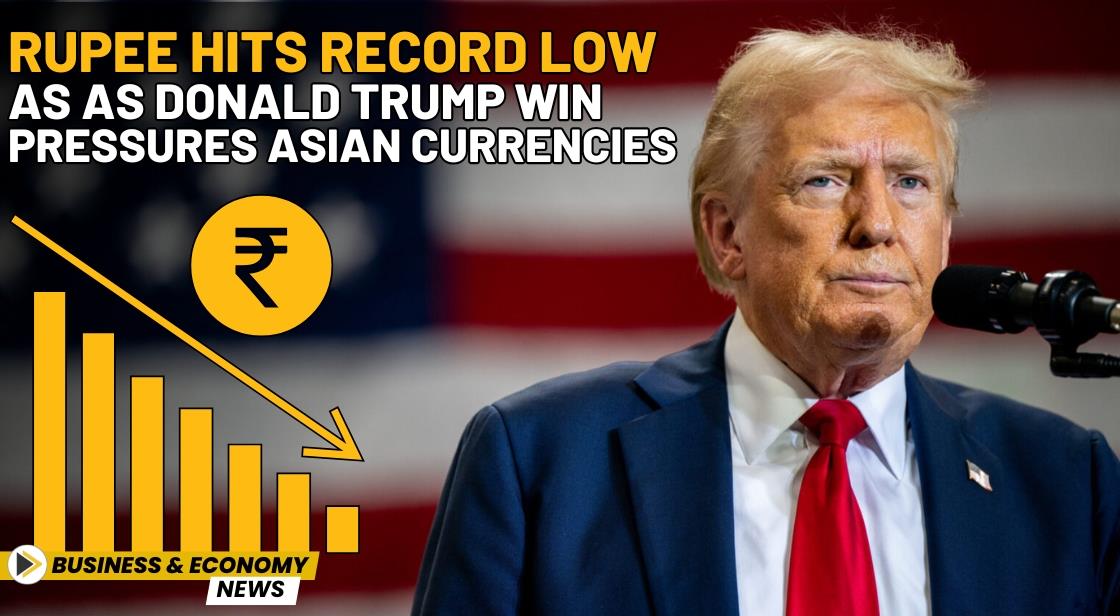Rupee Hits Record Low as as Donald Trump win pressures Asian currencies

Podcast
News Synopsis
The Indian rupee plunged to a record low of 84.3875 against the U.S. dollar on Monday, November 11, 2024. According to Reuters, this dip came in the wake of Donald Trump’s recent U.S. presidential victory, which has created anxiety across Asian markets, contributing to investor outflows from India’s stock market.
Key Drivers of the Rupee’s Decline
Impact of Donald Trump’s Victory on Global Markets
As Donald Trump’s win introduces uncertainty around U.S. tariffs, fears of economic strain on Asian markets have risen. With the dollar holding steady near a four-month high at 105, Asian currencies weakened by around 0.1% to 0.4%, adding pressure on India’s currency.
Reserve Bank of India’s Intervention
Traders reported that the Reserve Bank of India (RBI) intervened to prevent further decline, likely through dollar offerings from state-run banks. Some reports suggested that the RBI may let the rupee follow the Chinese yuan’s devaluation to manage trade impacts, especially given India’s trade deficit with China.
Foreign Exchange Reserves and RBI’s Strategy
Decline in Foreign Exchange Reserves
RBI’s intervention strategies have led to a reduction in foreign exchange reserves, now at a two-month low of $682.13 billion as of November 1. This depletion in reserves highlights the cost of efforts to stabilize the rupee amid ongoing global uncertainties.
Conclusion: Global Implications of Rupee’s Decline
The rupee’s recent record low highlights both the global economic sensitivity to U.S. political events and the complex interdependencies affecting emerging markets. Donald Trump's victory has heightened fears of increased U.S. tariffs, influencing a sell-off in Asian currencies and spurring outflows from India’s stock market. The Reserve Bank of India’s intervention has played a role in preventing further depreciation, yet at the cost of depleting foreign exchange reserves.
As the rupee’s performance increasingly reflects global uncertainties, particularly from shifts in U.S. policy, the RBI’s ongoing response will be crucial in maintaining currency stability and investor confidence. The situation underscores the necessity for careful fiscal policy and strategic reserve management in times of international economic upheaval.
As India navigates these challenges, maintaining balance between exchange rate stability and foreign reserve health will be key to sustaining economic resilience. This episode underscores the importance of proactive monetary policies and the adaptability required of emerging markets in an interconnected world.





